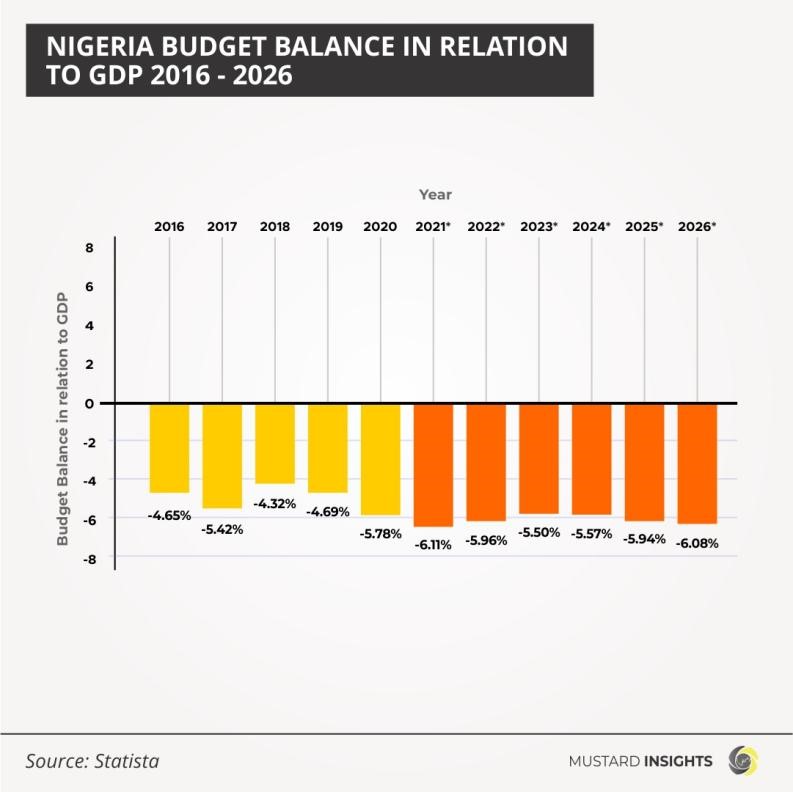The Federal Government of Nigeria sets a record for its highest ever fiscal budget deficit of 7.3 trillion NGN in 2021. According to data got from the Central Bank of Nigeria (CBN) and analysed by Mustard Insights’ Research Team, the Federal government’s net expenditure of 11.69 trillion NGN surpassed its revenues of 4.39 trillion NGN

The Federal Government of Nigeria sets a record for its highest ever fiscal budget deficit of 7.3 trillion NGN in 2021.
According to data got from the Central Bank of Nigeria (CBN) and analysed by Mustard Insights’ Research Team, the Federal government’s 2021 net expenditure of 11.69 trillion NGN surpassed its revenues of 4.39 trillion NGN. This represents a 22% increase when compared with the 5.98 trillion NGN recorded in 2020. The Federal government spent 11 NGN for every 4 NGN it earned in 2021; recording its highest ever fiscal imbalance.
This analysis, confirmed during a Public Presentation of the 2022 budget in Abuja, by Nigeria’s Minister of Finance, Budget and National Planning, show that deficit spending had risen to over 7 trillion NGN, as against the pro rata figure of 5.911 trillion NGN.
Breakdown
The breakdown of the data released by the CBN on the Federal government’s expenditure show that:
- Debt Servicing accounted for 36.1% (4.22 trillion NGN) of the total expenditure followed by capital expenditure accounting for 21.3% (2.52 trillion NGN) of the total expenditure.
- The Federal government spent 3.4 trillion NGN on Personnel cost (including Pensions and Gratuities) and 1.34 trillion NGN on items comprising Transfers (496.52 billion NGN), Presidency Amnesty Programme (59.59 billion USD) while overhead cost, MYTO and Service Wide Vote cost accounted for 779.18 billion NGN.
- Federal government expenditure profile shows that debt servicing expense is a large component of its budget of which the 4.22 trillion NGN spent on servicing the debt in 2021, and 29% higher than the 3.27 trillion NGN in 2020.
According to data provided by the Debt Management Office (DMO), Nigeria’s current debt profile stands at 95.87 billion USD as of 2021; 11% higher than its 2020 valuation of 86.39 billion USD as at 2020. With rising interest rates globally, the cost of paying off this large and growing debt will continue to exert a heavy burden on the Nigeria’s finances.
Experts forecast that 2022, based on identified factors such as dual challenges of weak tax receipts and anemic growth of the economy, the budget deficit will persist for another consecutive year.
Presently, oil prices are above the 100 USD which should increase revenue generated from the export of the crude oil, however, the low production capacity and high cost of PMS importation continue to undermine the benefits.
Takeaway
Although, most governments occasionally run budget deficits to support expansionary policies, it should, however, target increasing productivity and infrastructural development.
Thoughts?
We won't share your email address. All fields are required.
